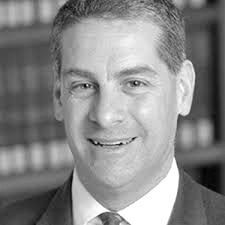The Seven Haftarot of Consolation deceive us with seeming monotony. For seven weeks, we are told by Second and then Third Isaiah that things will come out all right if we follow God. Have no fear. But lurking underneath this comforting if somewhat repetitive narrative are clues to challenge complacency.
So it is with the brief (12 verse) Haftarat Re’eh, where, in the middle of a delectable vision of the future, God slaps us in the face:
Why do you spend money for what is not bread,
Your earnings for what does not satisfy?
In context, the questions are rhetorical. Earlier, God presented the imagery of hunger and thirst as a state of spiritual emptiness, and the questions indicate the foolishness of abandoning the Divine.
But Scripture’s power derives in no small part from the interpreter’s capacity for de-contextualization. And decontextualization has real impact here because these questions are so compelling: why do we spend our earnings foolishly? Why does money not seem to bring satisfaction but we chase after it so much? We know that consumption cannot bring happiness, yet we consume more and more.
It does no good to rehearse the traditional criticisms of materialism: they may be true, but the Haftarah commands us to ask ourselves, why we are doing this?
Traditional Judaism has a neat explanation: each person has a Good Inclination (ha-yetzer ha-tov) and an Evil Inclination (ha-yetzer ha-ra). But this simple dichotomy flattens the human personality. The rabbis seemed to recognize the problem when they told the famous story of when the rabbis once captured the yetzer ha-ra and hid it in a barrel. (Yoma 69a) For three days nothing happened, no one went to work, no one begat or conceived children, even the chickens stopped laying eggs. The rabbis had to let it go. The key is not to destroy the yetzer hara, but control it and sublimate it for good.
All very well and good, but for me, it does not really get to the heart of the problem. The whole series of human drives cannot be encapsulated in one thing called an Evil Inclination, in the same way that all human desire cannot be simply called “the Id” and leave it at that. Different drives work in different ways, in different contexts.
The rabbis grasped this complexity, but lacked the vocabulary and perhaps the experience to excavate human drives more fully; it hardly disrespects them to build on their insights, not leave them in amber. In other words, our task now is to go Beyond the Good and Evil Inclination.
So how can we do that? How can Judaism – and Jews – develop a more complex and nuanced view of the human soul, and then work on themselves, in order to begin to answer God’s question?
We could first translate the Good and Evil Inclinations into the categories of Mussar, Judaism’s traditional system of moral discipline and formation. Mussar practice focuses on different middot, or character traits, that make up a good soul. Here is a partial list of middot from “>“Everyday Holiness”: humility, patience, gratitude, order, equanimity, honor, simplicity, enthusiasm, silence, generosity, truth, trust, yirah (fear/awe). We can reframe the Evil Inclination into the opposites of these middot: arrogance, impatience, entitlement, chaos, agitation, selfishness, duplicity, etc. etc.
I do not deny the existence of Evil. But for most people, most of the time, answering the question, Why do you spend money for what is not bread, your earnings for what does not satisfy?, does not concern Evil. Instead, it is about inner drives, many of which we do not understand or even acknowledge. These drives are, of course, complicated – far more so than simply labeling them “good” or “evil”. Our tendency toward selfishness, for example, will be triggered by differing events, with differing depths, and with differing therapies, than our tendency toward impatience. My teacher Alan Morinis of the Mussar Institute says that each soul has its own individual curriculum, which it needs to master in its own unique way.
Phrased in the way that Haftarat Re’eh does, however, the Middah most at issue at the outset is honesty. Not honesty with others, but rather ruthless honesty with ourselves, taking an astringent to our soul. Why exactly are we engaging in self-destructive habits? Why do we consume what we do? Is it really what we want? If not, then why are we doing it? Simply recognizing problems does not ameliorate them, but it is a necessary start. We cannot discover our soul’s spiritual curriculum without honesty. What are we hiding? What are we running from?
So what models are available to help us get to this level of honesty with ourselves? The consumptive angst referred to in Haftarat Re’eh is what “>St. Ignatius Loyola’s Spiritual Exercises. But it is inherent in the rabbinic function, and recently, a series of excellent programs have arisen to train lay spiritual directors (I am enrolled in the “Hashpa’ah” program through ALEPH, where I am a rabbinical student: other outstanding programs are “>Lev Shomea.). Judaism has thus joined other faiths in the burgeoning spiritual direction movement.
Assistance from a trained spiritual director helps me answer the questions that Isaiah poses so forcefully. As the “>Rabbi Harold Schulweis proposed developing a cadre of “para-professionals” in synagogues to help deal with the searing issues that congregants face. Spiritual direction answers Schulweis’ call.
By asking its searing questions, then, Haftarat Re’eh opens us up to an inspiring vision of Jewish community – one in which people see faith as a way into deep and unflinching internal self-exploration, accompanied by friends on the same journey. For the third Haftarah of consolation, this vision holds out both comfort and yearning, hope and doubt. It is the process of life itself.























 More news and opinions than at a Shabbat dinner, right in your inbox.
More news and opinions than at a Shabbat dinner, right in your inbox.